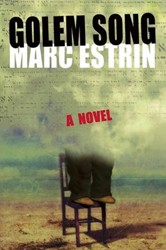Ellen Marie Wiseman takes facts from her family’s background and weaves them into fiction in this beautifully written first novel, which is told from the perspective of a non-Jewish German woman living through the deprivations of war and the rising fear of the Nazis.
The novel’s vivid descriptions help the reader feel part of the period and the locales. Not every non-Jew in Germany in the 1930s was a Nazis; far from it. The Plum Tree follows a family torn by feelings of patriotism for their country and the growing Nazi terror darkening their doorstep. The book’s heroine, Christine, learns first-hand what life is like in a concentration camp when she is deported to one after being discovered hiding her Jewish boyfriend.
The story continues after the war has ended and the atrocities of the Russian army hit close to home. In addition, problems of identifying Nazi criminals to the American authorities becomes increasingly difficult when the Nazis try to pass themselves off as regular Wehrmacht (Army) soldiers as well as persecuted victims of the Holocaust.
Ellen Marie Wiseman weaves a story of intrigue, terror, and love from a perspective not often seen in Holocaust novels.
The Plum Tree in Photos
When it comes to love during a time of war, there are millions of stories waiting to be told. In my novel, The Plum Tree, a poor, young German woman, Christine Bölz, falls in love with Isaac Bauerman, the son of her wealthy Jewish employer, in Nazi Germany on the eve of World War II.
When I wrote The Plum Tree, I could have focused on any number of family stories as the foundation for my plot. My grandparents’ story sounds straight out of a romantic movie — “Devoted husband and father of three is drafted into the German Army during World War II and sent to the Eastern front, where he is captured and sent to a POW camp. For two years his family has no idea if he is dead or alive, until he shows up on their doorstep one day.”
In the photo taken before my Opa is sent off to fight, my grandparents are smiling as they pose with my mother and uncles. I often wonder what was going through their minds at the time. Did they worry that this could be the last time they would be together? Did they wonder if the war would come to their small village and threaten their children’s lives?
Oma, Opa, my mother and uncles. This picture was taken before Opa was sent to the Russian front. There was another, nearly identical picture taken without Opa, to send to him while he was off fighting.
During the four years Opa was gone, Oma repaired damaged military uniforms to bring in a small income. She stood in ration lines for hours on end, made sugar out sugar beets, and bartered beechnuts for cooking oil. She cooked on a woodstove, made clothes out of cotton sheets, raised chickens and grew vegetables to keep her children fed. Under the cover of night, she put food out for passing Jewish prisoners and listened to illegal foreign radio broadcasts — both crimes punishable by death. She put blackout paper over the house windows so the enemy wouldn’t see their light and, night after night when the air raid sirens went off, ran down the street to hide with her terrified children inside a bomb shelter.
I could have based the story on my maternal great-grandparents, who survived World War I only to have my great-grandfather killed in World War II while trying to save the family home during an air raid. A burning wall from a neighboring barn fell on top of him, and my great-grandmother was severely burned trying to save him.
Luckily, my mother’s childhood home suffered only minor damage during the frequent air raids. After the war, it was taken over by American soldiers for a few weeks. This half-timbered three-story house is still in the family.
I could have based the book on my mother, who, after reading American magazines left behind by occupying Allied soldiers, took a ship to America alone, at the age of twenty-one, to marry an American soldier she barely knew.
In this school picture, taken eight years before she left for America, my mother is wearing a sweater knitted by her Oma, from wool she spun herself. In Germany during that time, parents had to pay for their children to go to school after eighth grade. My mother and her classmates were often pulled from class to gather a late harvest or pick potato bugs from farmers’ fields.
These stories and more were the inspiration behind The Plum Tree. But by inventing the love story between Christine and Isaac, I was able to tell them all. Imagine my surprise when, after I named my main character Christine, my mother told me that my great-parents’ names were Christine and Christian. I guess it was meant to be!
My maternal great-grandparents, Christine and Christian. These photos are from their, Ausweise, or identity booklets.





